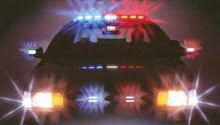If you are in need of a
Seattle traffic lawyer, you are probably suspected of having committed a violation of at least one law. I figured that since you are accused of something, you might as well know what the law is. Today I'm going to discuss Driving Under the Influence as defined in the
RCW 46.61.502.
In layman's terms, driving under the influence, or DUI, occurs when consumes so much alcohol or uses so much drugs that it impairs their ability to properly operate a vehicle. As I'm sure you know, the amount of alcohol in your system is often measured by a breathalyzer test, and a measurement of .08 or greater presumes (accepts without question) that you are over the limit of alcohol consumption a safe driver can have. But, the statutes have even more than that.
There are actually three ways a person may be guilty of driving under the influence in Seattle according to
RCW 46.61.502: if a person while driving a vehicle in the State of Washington: (1) has, within two hours of driving, a blood alcohol concentration of .08 or higher as shown by an analysis of the person's blood or breath made under
RCW 46.61.506 (this statute discusses all the rules of breathalyzer tests, blood tests, and refusing breathalyzer and blood tests - we'll talk all about this another time); (2) While the person is under the influence of or affected by intoxicating liquor or any drug; or (3) While the person is under the combined influence of or affected by intoxicating liquor and any drug.
What does this paragraph mean? Well, a couple of things. The first thing it means is that the police don't necessarily need a breathalyzer to tell if you are driving under the influence. If, for example, a Seattle cop pulls you over and after speaking with you and running tests believes you are driving under the influence he can arrest you and then charge you even if your breath test comes back under .08. The police can use their "training and experience" to form an opinion as to your sobriety (those are the kinds of cases a
Seattle traffic lawyer just loves to defend). The second thing is that DUI is not limited to just alcohol. You can be arrested for drugs too (even prescription drugs, by the way).
Which brings us to section 2 of
RCW 46.61.502: the fact that a person charged with a violation of this section is or has been entitled to use a drug under the laws of this state shall not constitute a defense against a charge of violating this section. This means that just because you were prescribed
Valium doesn't mean you can use that as a defense if you were driving after just having taken some. Voluntary intoxication is not a defense.
On to section 3: it is an affirmative defense to a violation of subsection (1)(a) of this section which the defendant must prove by a preponderance of the evidence that the defendant consumed a sufficient quantity of alcohol after the time of driving and before the administration of an analysis of the person's breath or blood to cause the defendant's alcohol concentration to be 0.08 or more within two hours after driving. The court shall not admit evidence of this defense unless the defendant notifies the prosecution prior to the omnibus or pretrial hearing in the case of the defendant's intent to assert the affirmative defense. Wow, that's a mouthful.
What they are saying in this case is that if, for example, you are driving in Seattle, commit some driving violation, and the police are looking for you, and while they are looking for you (at your home in Kirkland, for example), you get drunk, you can use that as a defense to drunk driving if you are charged with it. There are only two rules to this defense, though. First, you, the defendant, must prove that it was more likely than not that your drinking
after driving is what caused you to blow above .08, and second, that you have to notify the court and the prosecutor of this before they have the omnibus hearing (a hearing where evidence is presented and motions are argued at the beginning stages of criminal proceedings). The law just recognizes that sometimes people drink after they are done driving.
Section 4 was put in there as a last resort in case the police mess up with your original breathalyzer test. It states that breath or blood samples
collected after the 2 hour time limit to take the tests has passed may be used to show you were drunk within the two hour time frame after the incident, or that at least you had been drinking for the non-breathalyzer portions of the Seattle DUI laws. Does it sound a little shady, that the state or city prosecutor could use stale evidence to prove you committed a crime? That's because it is.
Section 5 says that a Washington state DUI is a gross misdemeanor
unless section 6 applies. Section 6 says a DUI is a class C felony if: (1) you have four or more prior
DUIs in the last 10 years; (2) the person has been previously convicted of: (a)
vehicular homicide while DUI; (b) vehicular assault while DUI; or (c) and out of state offense compared to (a) or (b).
That is it for your basic DUI law. If only it were that simple. Stay tuned for more Seattle DUI information from a Seattle traffic attorney.
Related Posts:
Seattle Traffic Lawyer | FSTs
Seattle Traffic Lawyer | What We Do

